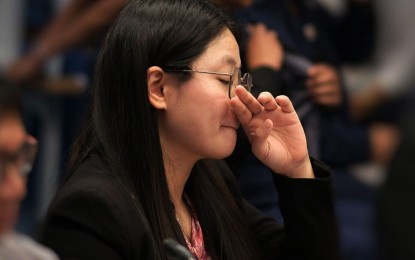The Straits Times of Singapore recently interviewed several ethnic Chinese who expressed concerns about anti-Chinese sentiment fueled by the case of Guo Huaping, former president of the Danlun Province Banban Society, and online gambling. They are particularly worried about deliberate provocations or incitement.
The Straits Times spoke with Meah See, former president of the Federation of Filipino-Chinese Youth, and well-known Chinese internet celebrities Cedric Cheng and Kimberly Mas. They believe that some ethnic Chinese have already experienced "micro-aggressions" from their Filipino peers, who joke about whether they know Guo Huaping personally or have any connections to the online gambling industry.
This reminds the author of an incident last month when a doctoral student from Jinan University in Guangzhou came to the Philippines for research and was asked by students at the National University of the Philippines if she was a spy or knew Guo Huaping, which surprised her. However, she noted that these students asked her in a joking manner and tone.
Those born or living in the Philippines for many years would know that Filipinos like to joke about others but are sensitive themselves and easily offended by jokes. It is believed that such questions are not intentional, but it shows that due to long-term negative media portrayal, there is a subconscious belief among them that Chinese might be spies or involved in illegal activities.
It is important to note that the Guo Huaping case is an extreme individual case and does not represent all Filipino-Chinese, but such thinking in the community is chilling. Hatred accumulates over years and might currently be expressed jokingly, but one day it could turn into genuine beliefs and firm stances, and whether it could lead to an Indonesian-style anti-Chinese incident is an unknown.
Meah See told reporters, "We are not online gambling. We live the same lives as Filipinos. We are definitely Filipino citizens. We are legal. We are not involved in any crimes."
This is the stance and thought of the majority of native-born Chinese Filipinos, but as internet celebrity Cedric Cheng pointed out, some Filipinos still cannot distinguish between ethnic Chinese and Chinese nationals living or working in the Philippines.
Podcaster Kimberly Mas shared that recently, while at a shopping mall, a Filipino man approached her relatives and said, "The West Philippine Sea is ours," before running away.
She added, "We are Filipinos. Why should our loyalty be questioned? It should be automatic. So, ethnic Chinese Filipinos are now rethinking our position in Filipino society. Are we truly accepted?"
Meah See countered those with anti-Chinese sentiments, "When you say anything Chinese is illegal, what about us, the Chinese-Filipino mixed-race people? What about those Chinese nationals who abide by our laws? It's like generalizing everyone. This is exactly what we hope to differentiate."
We are in a sensitive period, and every move of the Chinese and ethnic Chinese could be magnified by those with ulterior motives. Moreover, with the elections next year, many politicians traditionally play the China card to garner votes. The Chinese community must be more cautious, avoiding scenarios like playing the Chinese national anthem or marching with the Chinese flag at community inauguration ceremonies.
However, the Chinese community should not sit idly by. If actions potentially harmful to the collective interest occur, they should argue based on reason, take up legal arms to protect the rights of the Chinese ethnic group. It is crucial for the community to clearly distinguish itself from online gambling, Guo Huaping, and all illegal activities.
Author: Swordsman
September 3, 2024











